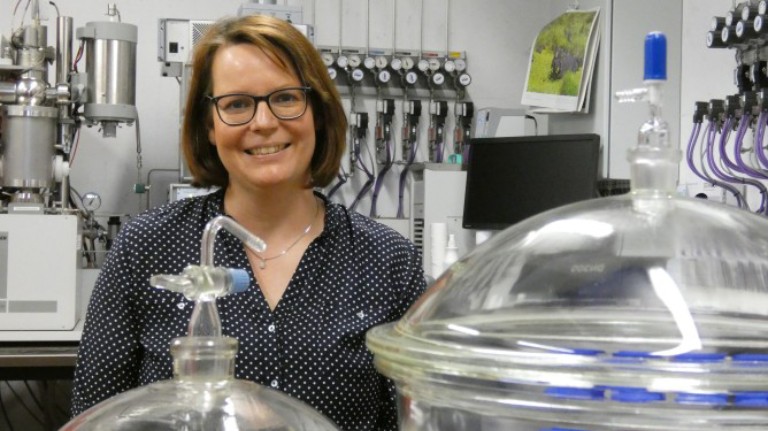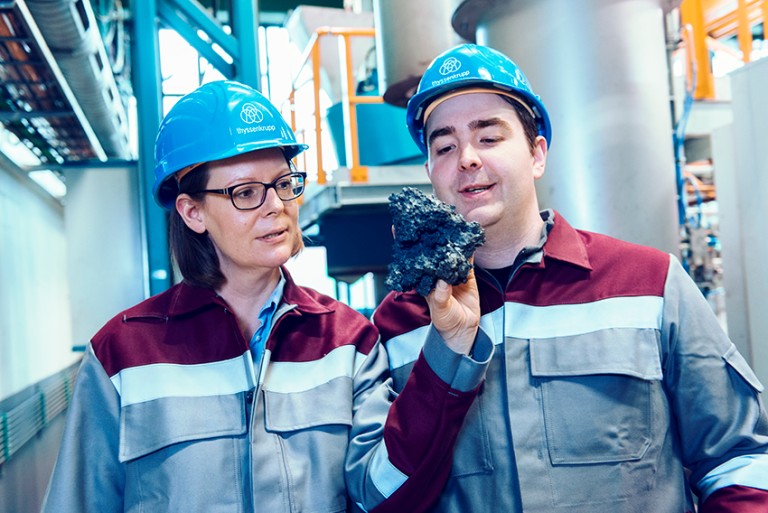Her workplace is located at the heart of the Schwelgern plant in Duisburg between the sinter lines and fine ore blending beds. “Even after all the years I’ve worked here, I still find it fascinating. There’s always something new and the site somehow looks different every day.” For Alexandra Hirsch the location of her workplace has a key advantage: “Production and research aren’t far apart. That’s very exciting for us because we can see the results of our work directly in production.”
And how many women work here? In fact, a ratio of more than 25% female members is not uncommon in some teams in the Ore and Iron Technology unit – well above average for the steel industry.
The route to thyssenkrupp Steel for Alexandra Hirsch went via RWTH Aachen University. “My school took part in a similar event to Girls’ Day, and the university was one of the organizations involved. Among other things we visited the metallurgy department. I found it really fascinating to see different disciplines such as mathematics, physics and chemistry all working together.”
After leaving school, however, Alexandra Hirsch initially decided to train as a draftswoman. “No-one in my family had ever been to university. I wasn’t sure whether it would work out and whether I would succeed.” Nevertheless, her dream of studying metallurgy was to come true. Even during her studies in Aachen most of her fellow students were male. Now she has a doctorate in metallurgy: “I’m proud that I managed it on my own. I achieved everything by myself and am independent.”
She has now been working for thyssenkrupp Steel since 2008. The question of whether it was more difficult for her as a woman than for her male colleagues is one she has heard a lot: “I have always received a great deal of support here. All in all I’d say it has never made any difference that I’m a woman.” The positive and supportive working atmosphere has played a key role in this.
Nevertheless, women remain a minority in the industry – even though their numbers are rising continuously. So what’s the solution? The much discussed female quota? “It could certainly help raise the profile of women in engineering professions. But a quota can only ever be a starting point – it must be about expertise, not gender,” says Alexandra Hirsch. “A woman should never feel that she got a job just because of a quota. She should get the job because she is the best qualified candidate.”
What would Alexandra Hirsch like to see in her profession? “Greater recognition for what women achieve every day,” she says. In the future she hopes that more women will become interested in a field that still fascinates her every day. “It’s definitely not a nine-to-five job – but it’s anything but boring.”

